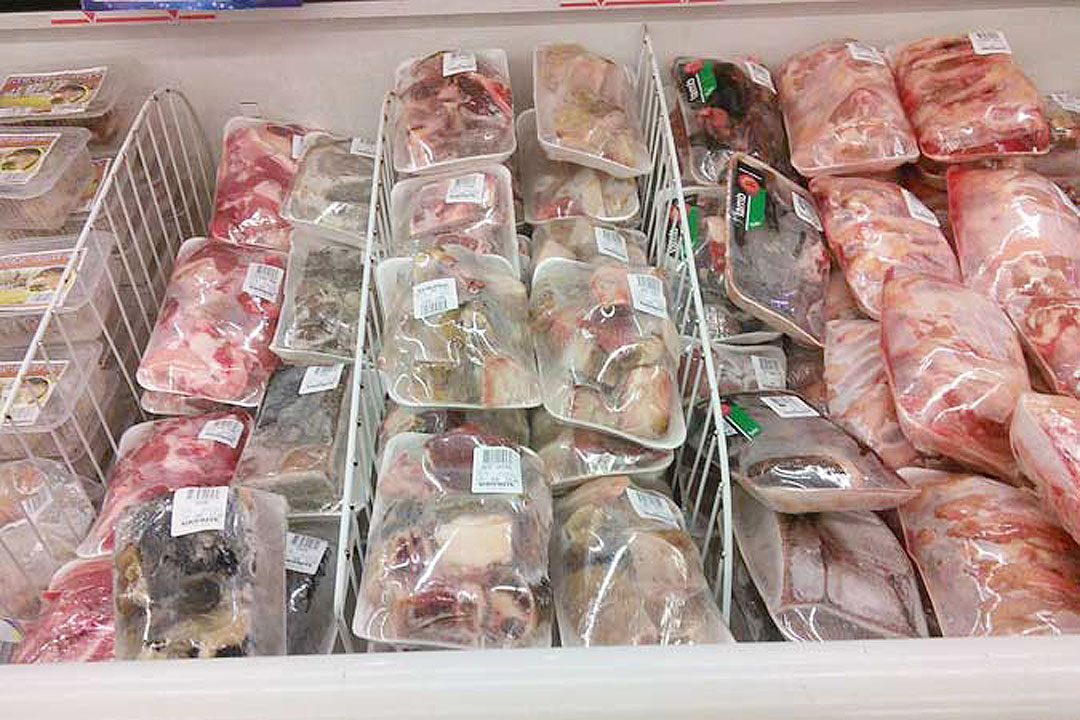Meat imports up 3% in Q1 led by beef, pork

MEAT imports rose by 3.06% during the first quarter, with growth seen in shipments of beef, pork, and turkey, according to the Bureau of Animal Industry (BAI).
The BAI tallied imports of 273.64 million kilograms of meat during the first half, against 265.52 million kilos a year earlier.
“The total imported volumes for Q1 appear steady for the years 2022-24, although 2023 total imports were lower than 2022. This “frontloading” could be attributed to the importers’ expectations of Christmas sales and the need to replenish supply,” Meat Importers and Traders Association (MITA) President Emeritus Jesus C. Cham said via Viber.
Pork imports, which accounted for 46.96% of meat imports overall, totaled 128.51 million kilos, up 11.92%.
Spain was the primary source for pork, accounting for 33.77 million kilos, followed by Brazil (31.89 million kilos) and Canada (18.38 million kilos).
“Going forward, we are cautious on the supply side for pork as importers are facing headwinds. The Department of Agriculture (DA) suspended the pork quota and did not push through with its distribution which ought to have been in January,” Mr. Cham added.
“DA has just announced May 3 as the date to conduct the distribution process. This is a three-month delay,” he said.
He added that the presence of African Swine Fever in source countries has hindered hog production, constricted supply, and exerted upward price pressure on pork.
Mr. Cham said that the government should extend the lowered tariff regime on pork imports for at least two years or for the duration of President Ferdinand R. Marcos, Jr.’s administration.
Last year, Mr. Marcos approved Executive Order (EO) No. 50, extending the reduced tariff regime for pork, rice, and corn.
Pork tariffs were retained at 15% for shipments within the minimum access volume and 25% for those exceeding the quota.
He added that the President’s economic managers should also consider expanding the MAV for pork and poultry.
Last week, Mr. Marcos approved Administrative Order No. 20 which instructed the DA, the Departments of Finance (DoF), and Trade and Industry (DTI) to remove nontariff barriers to imports of farm goods.
Nontariff barriers are policy measures that restrict trade such as quotas, import licenses, regulations, and red tape, among others.
“The added supply and window of certainty and predictability will allow more opportunity for meaningful interventions against ‘sticky’ inflation,” Mr. Cham said.
Shipments of beef rose 6.55% during the three-month period to 35.32 million kilos. Beef accounted for 12.91% of the import total.
Brazil supplied 12.63 million kilos of beef, followed by Australia (10.75 million kilos), and Ireland (3.41 million kilos).
Turkey shipments also surged to 307,835 kilos from 87,739 kilos the same period in 2023.
Meanwhile, imports of chicken, buffalo, lamb, and duck all declined during the first quarter.
Chicken imports, which accounted for 35.46% of meat imports overall, totaled 128.51 million kilos, down 5.56% from a year earlier.
Brazil supplied 50.07 million kilos of chicken, followed by the US (36.05 million kilos) and Canada (3.65 million kilos).
Imports of buffalo dropped 14.92% to 12.32 million kilos, while duck and lamb fell 67.51% and 13.05% to 33,375 kilos and 122,483 kilos, respectively. — Adrian H. Halili



